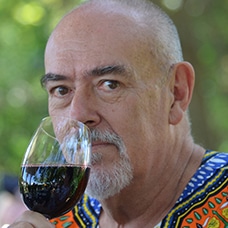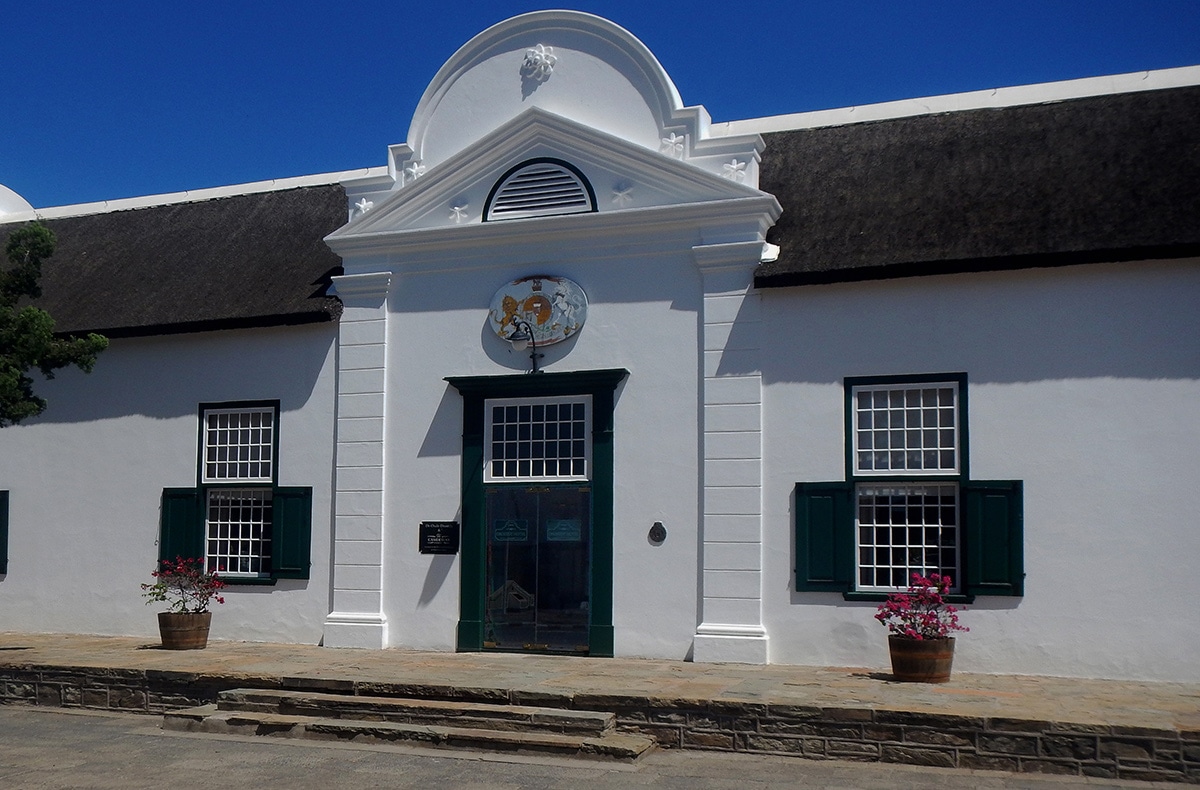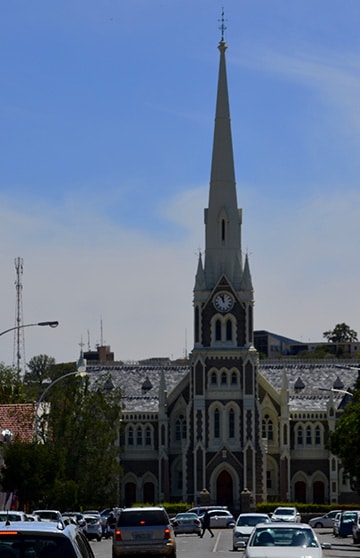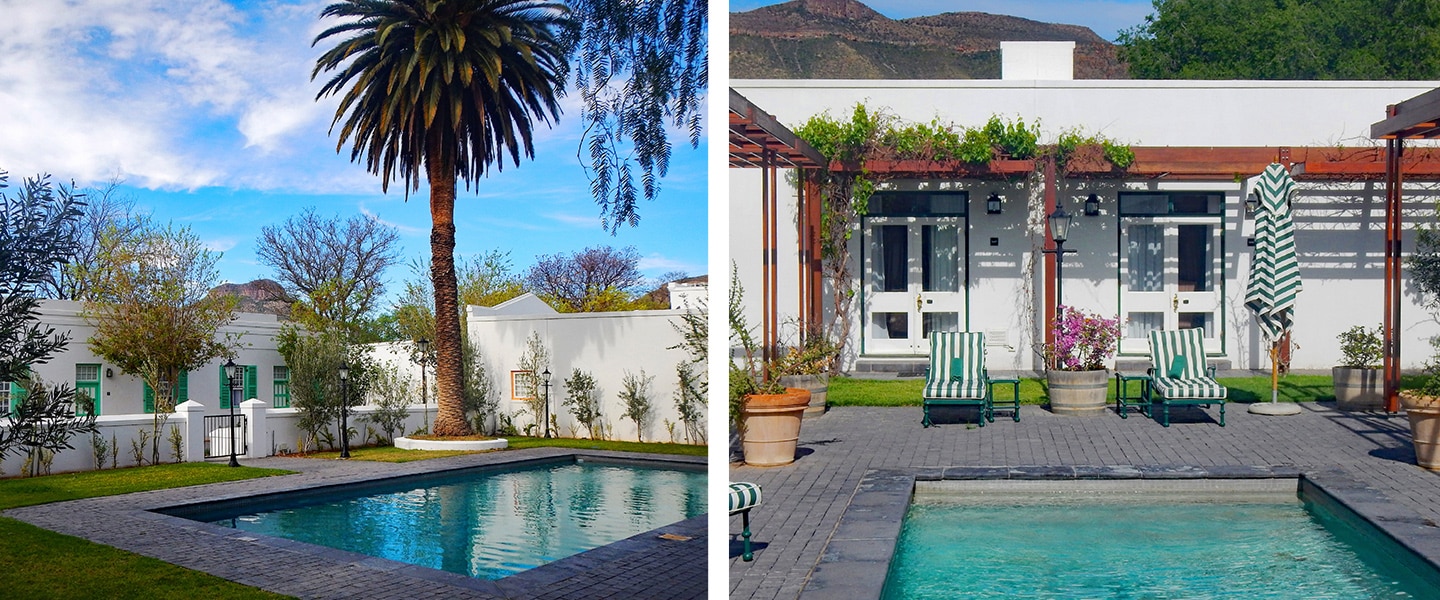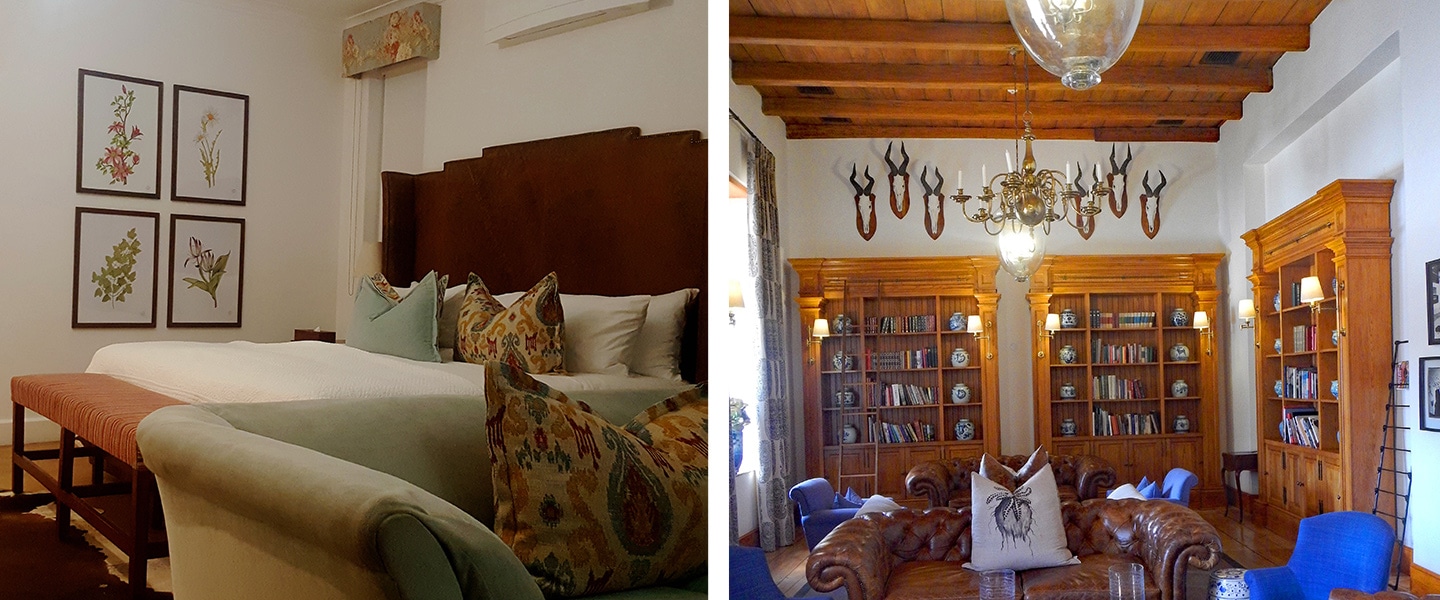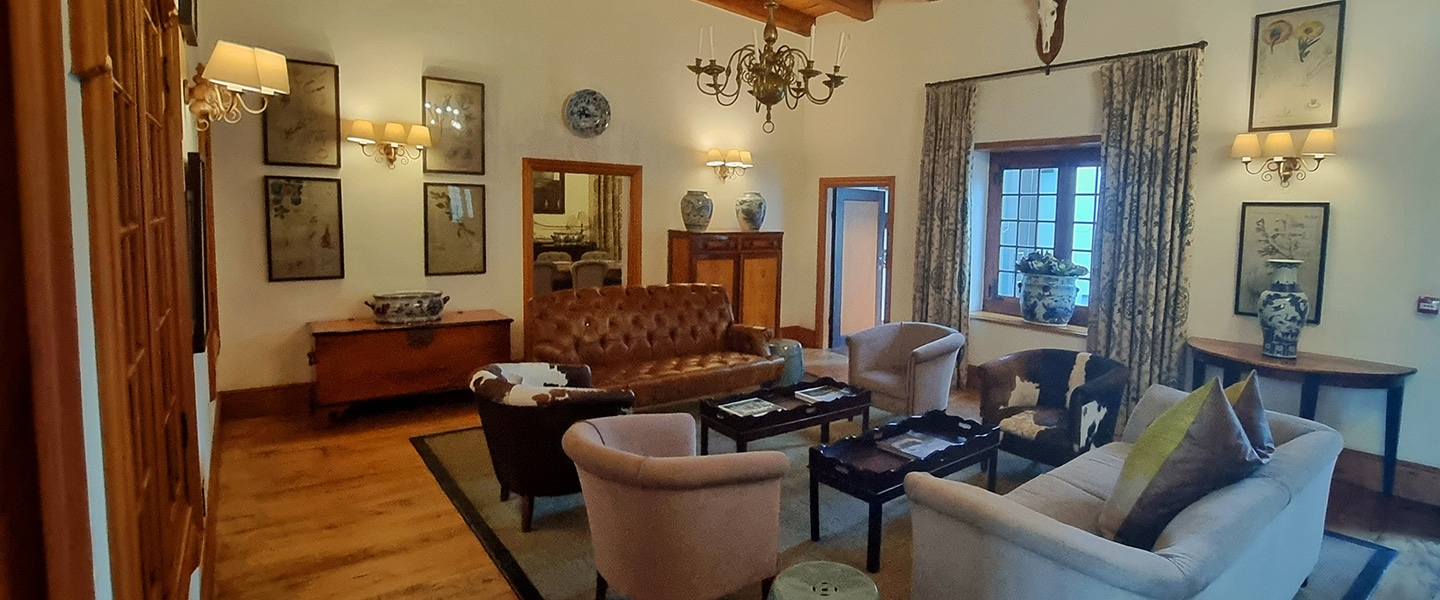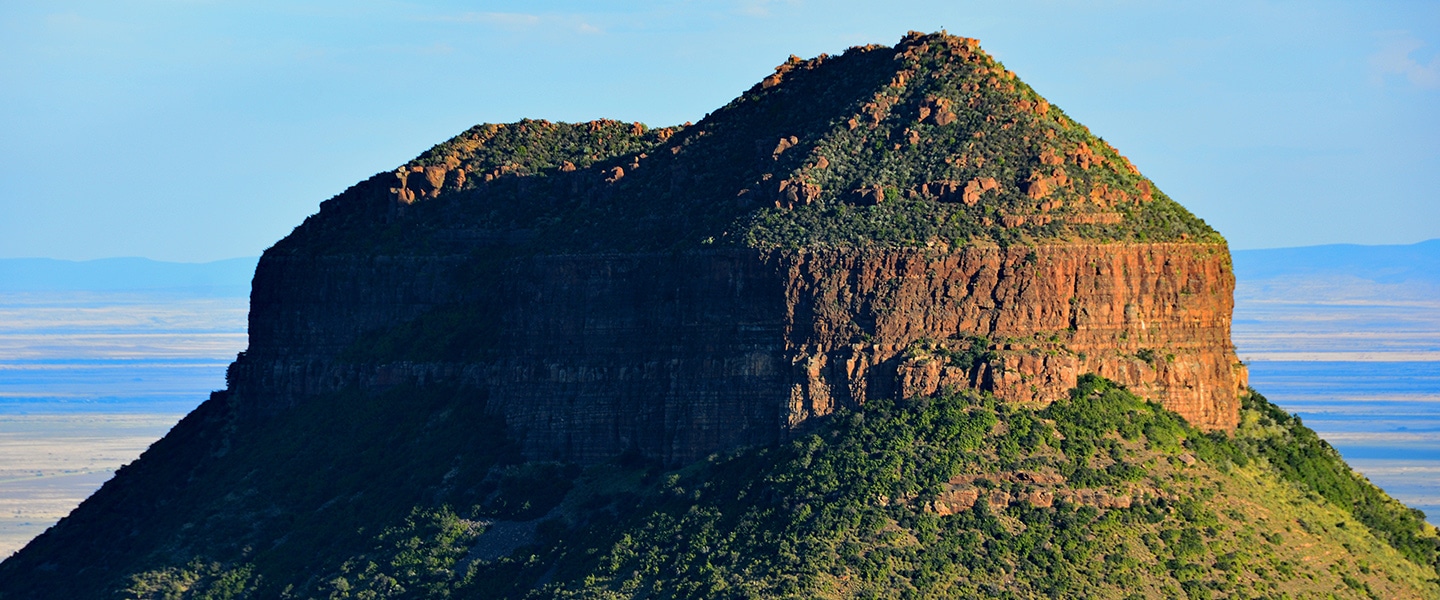Among the main tourist attractions is the Valley of Desolation in the Camdeboo National Park — a geological feature comprising dolerite cliffs and pinnacles that glow in the late afternoon sun — rather than an expanse of nothingness as the name suggests. It’s a spectacular spot for sundowners or to enjoy the prolific birdlife that includes Verreaux’s eagle and smaller raptors.
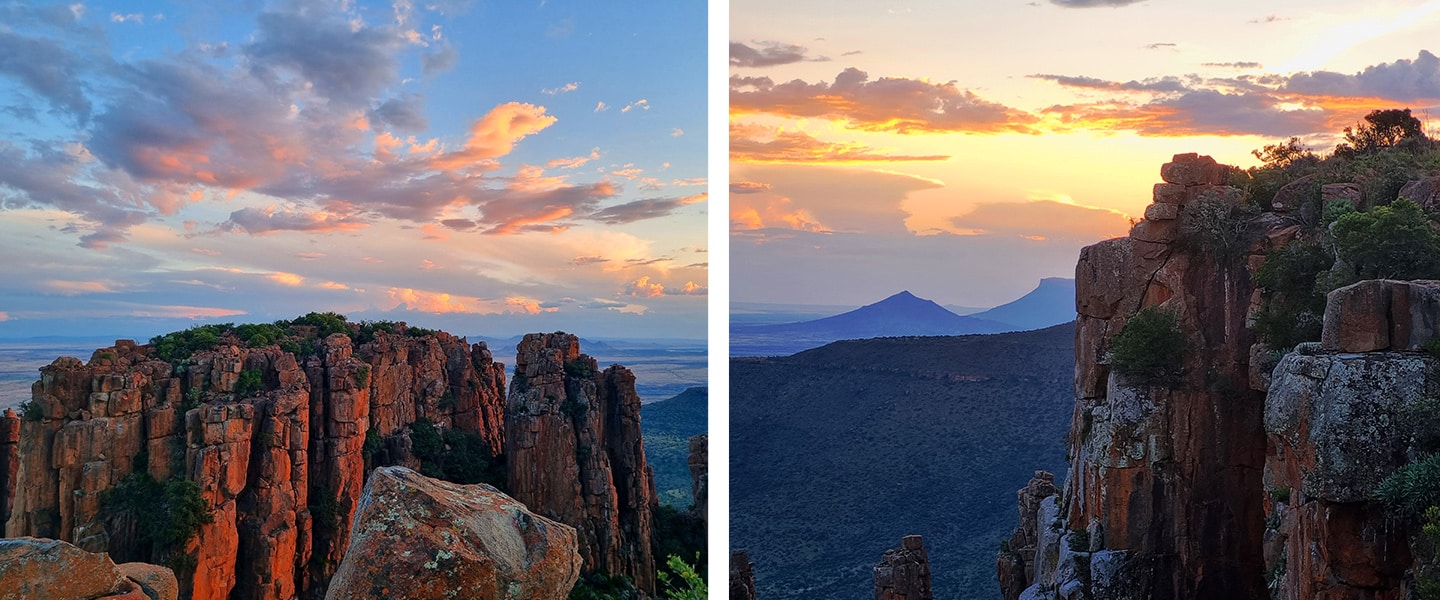
After Dr Rupert died in 2005, his family conducted an extensive refurbishment to bring the Drostdy to its current level of elegance before bequeathing it in 2014 to the locally based SA College for Tourism, which operates under the auspices of the Peace Parks Foundation. Dr Rupert, with former president Nelson Mandela and HRH Prince Bernhard of the Netherlands were co-founding patrons of the Peace Parks Foundation, established in 1997 with the purpose of creating transfrontier conservation areas throughout Southern Africa.
Mariette Ferreira arrived at the college as a hospitality industry trainer in 2003, when the learner intake was limited to 20 young South African women a year. The intake increased to 30 when learners from neighbouring states were recruited through the foundation.
“The programme is intense because learners have to be given a good grounding in the main areas of hospitality operations — kitchen, food and beverage, front of house and housekeeping — in just 10 months,” says Ferreira, who is now director of the college.
The Drostdy Hotel is managed by Newmark Hotels, which oversees technical support aspects such as reservations, finance and human resources management.
From being an inconspicuous and — truth be told — somewhat dingy establishment whose almost sole claim to fame was a pub with cold beer on a long, mainly dreary road from Point A to Point B, the Drostdy has transformed itself into a colourful, stylish and airy oasis of hospitality. The hotel has 48 rooms in four categories: eight bachelor (ideal for corporate travellers and overnight visitors); seventeen standard (one with universal accessibility); fifteen executive and eight suites. Four of the standard rooms are pet friendly.
The rooms are all remodelled workers’ cottages, in keeping with the town’s agricultural heritage, and it’s no surprise that a “slave bell” has been painstakingly restored and is prominently displayed. A nod to five-star elegance comes in the form of an Africology spa, art gallery (along with a couple of Dylan Lewis sculptures in the grounds), library and wine cellar.
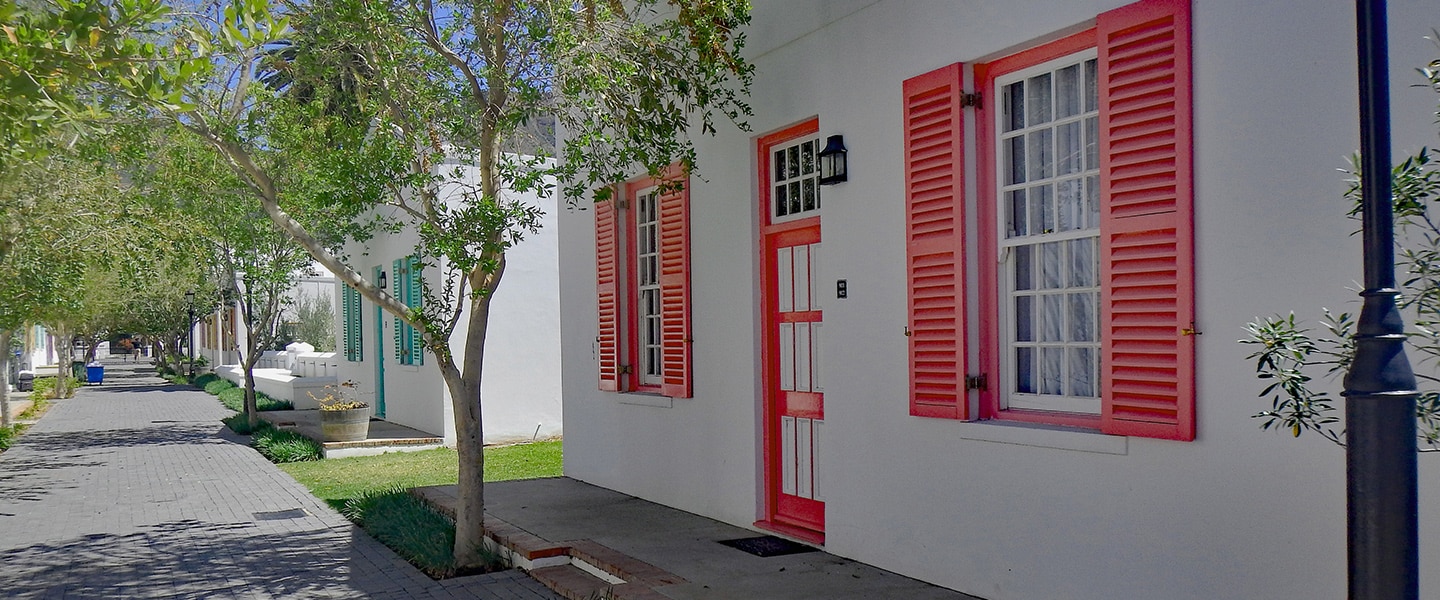
The upgrade of the Drostdy has played a significant role in transforming Graaff-Reinet from an (at best) one-night stopover for travellers heading north or south into a destination in its own right. “There’s so much to see and do around the town that a three-night stay is becoming the norm, especially for South African tourists,” says general manager Janus Schoeman.
The Drostdy investment and the resultant upswing in tourism appear to be rubbing off on the town itself: guesthouses and B&B accommodation facilities are proliferating, as are other visitor attractions such as bistros and artisanal-food emporia. There’s even a highly regarded local rum called Afrikanis.
“We’re well on our way to becoming another Clarens,” says Schoeman. “Just wait… in another couple of years we’ll be giving Franschhoek a run for its money!”
For reservations and info, call +27-(0)49- 892-2161 or email info@newmarkhotels.com or info@drostdy.co.za
